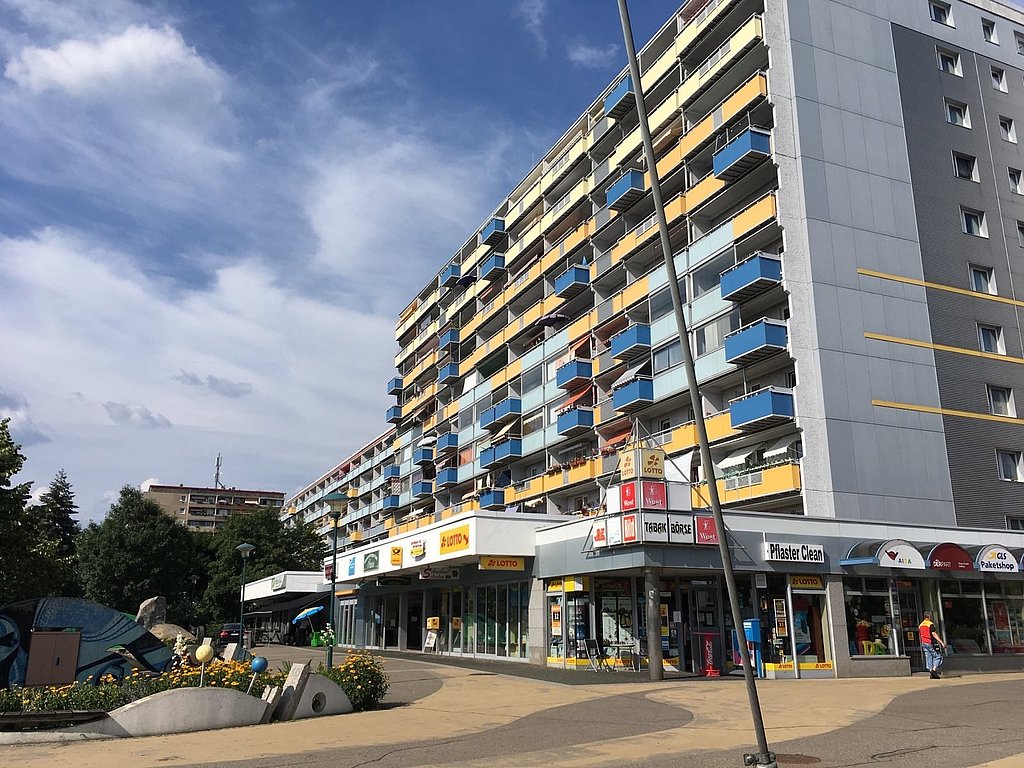When Marcelo P.* [*name changed by the editors] talks about Herrentag 1990, his gaze wanders into the distance and his eyes become sad. It is the day on which the industrial welder narrowly escapes a right-wing attack in Cottbus. He and his circle of friends - all contract workers, many of them also Black - plan their days, their routes, their leisure activities so as to avoid possible attacks and not to provoke anyone. The disco is particularly dangerous. A friend of Marcelo's was beaten up there by a young woman with a high heel, "you could even see holes afterward!"
When we interview Marcelo as part of the research project Youth Work, Police and Right-wing Youth in the fall of 2021, it is still palpable to us as researchers how present everyday right-wing violence is in the lives of those affected, even over thirty years later, how vivid the memory of it still seems to be. Conversations like the one with Marcelo also shape the attitude with which we approach the interviews we conduct with former professionals who at the time wanted to "get young people off the streets" in newly founded youth clubs.
The first years after the "Wende" and the unification of the two German states were marked by racist riots and right-wing violence in many places. Often, the perpetrators were young people who were associated with the right-wing or extreme right-wing spectrum. In response to this, a controversial debate developed in the field of social work, in which the concept of acceptive youth work took on an important role. The police also faced new challenges as a result of this massive escalation and were considered an "insecure institution" due to the restructuring in East Germany.
The research project JUPORE (Jugendarbeit, Polizei und rechte Jugendliche in den 1990er Jahren) builds on this initial situation with the aim of reconstructing police and socio-pedagogical actions towards right-wing and right-wing extremist youth in the focus regions of Cottbus and Berlin-Lichtenberg. Gender-reflective and racism-critical perspectives are particularly central to a comprehensive understanding.
For this purpose, we were in close exchange with our cooperation partners. In addition, we held one (digital) workshop each with researchers and practitioners from the police and social work and exchanged interim results.
"From a gender-reflective perspective, the question arises as to what effects a lack of concepts and conceptions has on dealing with right-wing youth."
The methods used include, in addition to Critical Discourse Analysis and Ethnographic Walk-throughs, guideline-based interviews. The latter were conducted with (former) experts from youth work and the police, former right-wing youths, victims, observers, committed people from the critical civil society, and experts from the accompanying research. The interviews are currently being evaluated using qualitative content analysis according to Kuckartz. First results were presented at the end of March at an interdisciplinary final conference in the Audimax of the ASH Berlin. In addition, we are currently working on a publication that presents the research results as well as some aspects of the conference in more detail.
The interviews with the former professionals show that the concept of Acceptive Youth Work was assigned a meaning, but the everyday professional action was rather characterized by situational assessments, and less by elaborated conceptions.
From a gender-reflective perspective, the question arises as to what effects a lack of concepts and conceptions has on dealing with right-wing youth. The experts' statements document a number of situations in which gender norms seem to guide their actions. Normative gender concepts are thus not questioned, processed or even deconstructed in their contradictoriness and violence, but rather experience a powerful tradition - also by the professionals. In the situations described, a recourse to one's own standardized gender stagings and practices (and thus to the learned masculine habitus) becomes apparent. This problem is exacerbated by the context of the target group of right-wing and far-right youth, where violence, sexism, misogyny, and antifeminism are integral parts of the ideology.
Our research findings illustrate how professional action was shaped by the transformation processes. Both police and youth work were assigned the task of social problem solvers at the time. Both professional groups focused their work on violent behavior and male perpetrators, with youth work in particular being oriented toward the needs of the perpetrators. The focus was lost on female users of the youth clubs, as well as on those affected by right-wing violence - such as Marcelo, the young industrial welder from the interview.
At the time, he saw no other option than to leave Cottbus and try his luck in Berlin. In an interview with the research project, he summarizes the time after the fall of the Wall as follows: "There was nothing good, nothing nice. The young people simply had too few prospects and too many opportunities."
Brief information Project name: Youth work, police and right-wing youth in the 1990s
Project duration: 01.04.2020-31.08.2022
Project management: Prof. Dr. Esther Lehnert (ASH Berlin), Prof. Dr.Christoph Kopke (HWR Berlin)
Project Funding: IFAF Berlin
Project Partners: Gender, GMF and Right-Wing Extremism Unit of the Amadeu Antonio Foundation, Action Alliance against Violence, Right-Wing Extremism and Xenophobia, Emil Julius Gumbel Research Unit - Moses Mendelssohn Center for European-Jewish Studies, Landesstelle für Gleichbehandlung - gegen Diskriminierung
Website: https://www.ifaf-berlin.de/projekte/jupore/
Vero Bock is a student in the M.A. Practice Research, Lucia Bruns is a research assistant in the research project JUPORE.



